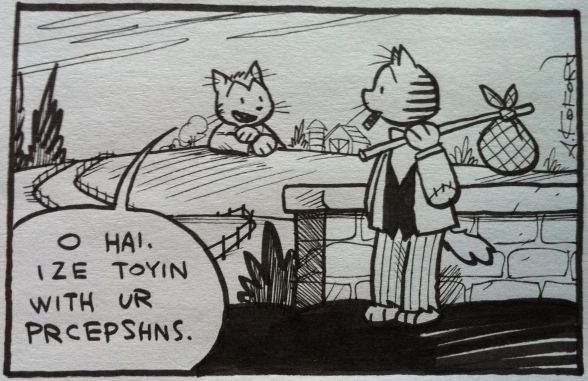Faithful Place, French. Yes. Before I was 15 pages in, I was certain this book would break my heart. I continue to enjoy French’s writing, and am especially happy that the Irish idioms have not been cut out for American consumption (or at least not as far as I can tell). Dialogue, characterization, plot, all make me hope I won’t have long to wait for French’s next release.
Category Archives: Craig’s Book Reviews
Iorich Review
Iorich, Brust. Yes. I won’t call this a return to form, since I don’t believe Brust ever lost his form. Iorich does, though, represent a number of returns for the Taltos books, and by and large they work for me.
Lifelode Review
Lifelode, Walton. Yes. My only previous exposure to Walton was the straight-up alternative history of the Small Change series, which I enjoyed quite a bit. Lifelode is set in a very different world, though the characters are completely recognizable and resonant in their humanity. The non-linear narrative could easily have distracted, had it not been well executed and clearly in service to the story.
I will express some concern at the presence of a FAQ at the back of the book. I may simply be an old stick-in-the-mud, but my reasoning runs something like this: if there are issues that need to be clarified, then by all means clarify your text; if you want to talk about how the work came to be, then give an interview or write a blog post, or even an Author’s note; and if you just want to underscore that you’re not going to answer a question, well, shouldn’t that go without saying?
Being Wrong Review
Being Wrong, Schulz. Non-fiction. This was a book club obligation, and it is perhaps the most interesting book club obligation I have so far incurred. It is not, though, an optimistic-making book, as the bottom line that I get from it is that we can’t trust our brains to make decisions based on evidence. I’ve observed this in myself: I’ll be looking at some diagnostic information to confirm my diagnosis, and I’ll see something and think ”That’s weird; I wouldn’t expect to see that unless [thing I’ve decided isn’t happening] were happening,’ when of course the thing I’ve already ruled out is the thing that’s actually happening. Having done that, I can all-too-easily imagine a surgeon saying “Weird; this says left leg, but we’re supposed to be taking off the right leg.”
Schulz makes a solid case that we need to expect error and manage it rather than fearing it or expecting to be able to eliminate it (though there are some areas, such as medicine, where it is necessary to protect against the consequences of any individual error, through such measures as checklists). If I were a better person, I’d look at journal articles and learn more about the topic.
Lottery Review
Lottery, Wood. Yes. This book has some superficial similarities to Marcelo in the Real World—though Lottery is not categorized as a YA novel—and I feel about it much as I do about MitRW: I won’t read it again, and I didn’t love it, but the story was not without charm, and the writing was competent. I found the characters by and large to be more sympathetic than those in MitRW, though I did find the narrative voice to be occasionally tiresome.
I Am Not Sidney Poitier Review
I Am Not Sidney Poitier, Everett. Yes. As with Erasure, this was more a book I should have read with a book club than on my own. This time I was more distracted by the “brilliant satirical skewering” (as PW put it), and by what struck me as experimental aspects.
Ultimately, I think the book wanted me to work harder than I customarily wish to, but it did not quite compel me to work disqualifyingly hard. Nonetheless, I expect this will be my last try at Percival Everett. Without a book club, anyway.
Marcelo in the Real World Review
Marcelo in the Real World, Stork. Yes. I did not love this book, but neither would I choose not to have read it. It was a bit of a slog, and I had a hard time sympathizing with any of the characters, but the story was relatively engaging, and I don’t recall any glaring mechanical complaints.
Zoë’s Tale Review
Zoë’s Tale, Scalzi. Yes. Something of a coda to the earlier “Old Man’s War” books, this one also serves as a “No, that wasn’t a plot hole, see?” rebuttal to some earlier critics. I expect anyone who enjoyed the rest of the series will enjoy this, though I would not consider it required reading.
Erasure Review
Erasure, Everett. Yes. I wish I had had a book club to read and discuss this one with, as I strongly suspect Everett was doing things I remained blissfully unaware of. Mechanically very strong, though I was deeply disappointed to see “y’all” rendered as “ya’ll”. There was also a weird OCRish typo: “stones” for “stories” and an instance of “Here, here” for “Hear, hear”. I wondered whether perhaps that last defect was a comment on the speaker; if so, it was too subtle for me.
Johnny and the Bomb Review
Johnny and the Bomb, Pratchett. Yes. This may have been the first Pratchett I have read, and it neither disappointed nor thrilled me. A harmless, entertaining counterpoint to Blackout.
